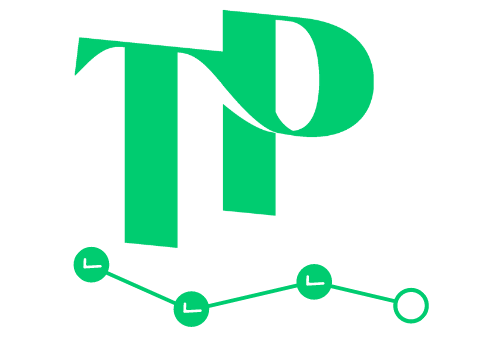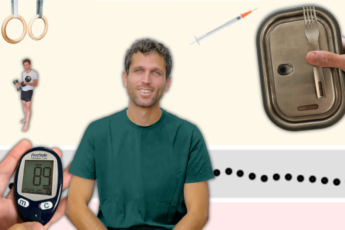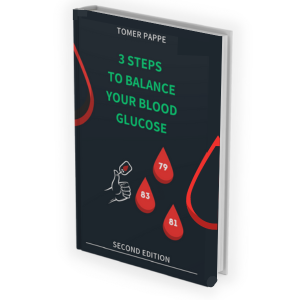
Dangers of Overtraining
Do you know the phrase “too much of a good thing”? It turns out that it is true when it comes to physical activity and it is accompanied by symptoms. Overtraining can cause damage if you push your body to the limit. I wrote this article from a personal place after experiencing overtraining myself. I see the distribution of the article as a real mission. This is a topic that is not talked about enough in today’s fitness environment.
The phenomenon of overtraining begins in the adrenal gland. The adrenal gland is probably the most sensitive gland in the body to stress. When we train at too high an intensity and too often, the adrenal gland will work beyond its natural capacity in an attempt to regulate a normal level of function in the face of the pressure exerted on the body.
When we train at a high heart rate every day and do not give the body enough time to rest and proper nutrition, the chances of reaching a state of over training (OT) increase.
Table of contents:
What is overtraining?
By definition, overtraining is a situation in which the body’s stress hormone reserves remain depleted for an extended period of time and the body fails to meet the demand for stress hormones. A prolonged period in which the reservoirs of stress hormones remain depleted can lead to conditions such as: hypothyroidism (underactive the thyroid gland), adrenal insufficiency and chronic fatigue which is often manifested in low energy throughout the day and muscle pain. Throughout history quite a few professional athletes have suffered from overtraining at the peak of their careers. Many of them had to retire because their bodies left them no other choice. One such case that is covered relatively extensively in the media is the story of the retirement of the legendary striker of the Brazilian national team – Ronaldo Luiz Nazario de Lima. It was a rare case of overtraining and underactive thyroid being talked about so openly and honestly. It is not usually common to talk about overtraining in the ego-filled environment of competitive sports and gyms. Even in the schools for training fitness trainers in Israel, the subject is hardly mentioned. Most of the trainers learn in the course the “No pain no gain” approach which is very typical of our culture.
How can a situation of overtraining be solved?
As a first step, what is certain is that you will need to rest a lot. This is the only way the body will be given a real chance to heal.

It is common to divide the Over Training Syndrome (OTS) to 3 stages:
Stage 1
The diagnosis is not always easy and clear, but the very identification can help prevent more serious complications later on.
In the first stage of overtraining syndrome, an increased production of stress hormones and a slight increase in sympathetic activity (the system that operates in immediate stressful situations such as fight or flight) are often involved. Signs for stage 1: fatigue, impaired quality and quantity of sleep, insomnia and muscle pain. For athletes who measure heart rate regularly, it is often possible to notice changes in heart rate at rest, which are due to a high baseline of stress hormones such as cortisol.
Recovery from stage 1
It will usually be relatively quick and easy, with full recovery within one to three weeks, if the stress on the body has been significantly reduced.
For full recovery it is recommended, among other things:
Reduce training to a minimum and stop training at high intensity during the recovery period.
In addition, it is highly recommended to rest a lot and try to sleep well at night, 7-9 hours of quality sleep. You can also incorporate a little low-carb diet that can help reduce inflammation.
Stage 2
If attention is not paid to the symptoms that appear in stage 1 and if the training program continues at the same volume and intensity – we may find ourselves in the second stage of overtraining. In stage 2, neurological balance problems (of the nervous system) and hormonal balance problems may appear which may lead to an even faster heart rate during rest which may eventually lead to a high heart rate during training which impairs performance.
According to the literature, the main characteristic of stage 2 of overtraining syndrome is extremely high cortisol, which can lead to: low testosterone, low thyroid hormones, symptoms of hypothyroidism, impaired fluid and body temperature regulation mechanisms, loss of electrolytes and increased loss of sodium .
The best way to accurately diagnose the condition would be to talk to the attending physician. Assessment and diagnosis by a professional is necessary at this stage along with a medical history examination, physical examination and referral to relevant tests.
Recovery from stage 2
Recovery from stage 2 can take one to three months or even more. Depends on the athlete’s discipline. Based on past cases, most coaches will give athletes a complete rest of about six months to fully recover from stage 2. Sometimes
It may be necessary to add hormones externally and the decision will be made by the attending physician after analyzing the laboratory results and relevant tests.
For a full recovery, it will often be necessary to immediately stop high-intensity training and reduce the volume of training to a minimum and rest the body as much as possible. Here, too, the recommendation is to adhere to 7-9 hours of quality night sleep without interruptions.
Even in stage 2, in most cases, nutrition that contributes to reducing inflammation was an inseparable factor from the rehabilitation process.
Stage 3
The final stage of overtraining syndrome is a clinical condition that, in order to properly treat it, will require the intervention of professionals. At this stage the body reaches a sort of complete depletion of the hormonal and neurological reserves with distinct physical, clinical and mental symptoms. There are athletes who have reached this stage after years of practicing professional-competitive sports. Due to the dragging of the symptoms of overtraining and their deepening, their bodies “forced” them to retire early.
This is a health condition that should not be taken lightly. The body’s systems are exhausted, among other things due to adrenal fatigue, which is another manifestation of a decrease in the ability of the HPA axis to compensate for the excess of chronic stress. Adrenal exhaustion is also caused by a decrease in the ability of the adrenal gland to produce a sufficient amount of cortisol. Studies have shown that in the long term, impairments in metabolic and cardiovascular function may appear. Ultimately, after a prolonged period of fluctuations in heart rate levels, due to unstable levels of cortisol, the resting heart rate may drop significantly below the body’s natural level.
Also from a mental point of view, situations may develop where our motivation will be poor, which may make the recovery process more difficult.
Recovery from stage 3
Returning to previous capabilities and performance level is a complex process that may take months to years. In past cases, professional intervention was required on the part of the athlete’s or club’s doctors and health teams to individually treat the symptoms and adapt treatment to the athlete’s current condition. Of course, all medium to high intensity training and long training sessions must be stopped, including any competition or sports event that has already been planned. Rest, as you already understood, is necessary in overtraining syndrome, so of course at this stage complete rest will be the key factor together with a continuous and good night’s sleep that was also mentioned in the previous stages. The general recommendation is to eat sufficient amounts of fat and high-quality protein from animal products and to focus on a diet that supports and reduces inflammation in order to give the body a stable ground for healing, rebuilding and producing new reserves of the missing hormones. Other recommended ways of eating to reduce inflammation are AIP and PKD.
The good news is that given the right treatment and the right diet athletes have completely recovered from Stage 3 Overtraining Syndrome.
It is important to treat stage 3 of overtraining with a skilled and experienced doctor who specializes in sports and who approaches the treatment of the body in a holistic way. The athletes who healed themselves are the ones who went to the right therapists and doctors and more importantly – these are the athletes who knew how to listen to their bodies.

*The information on this website is not intended to be a substitute for professional medical advice, diagnosis or treatment. The said information is intended for informational purposes only and stems from personal experience. The text is not intended to diagnose, treat or cure any specific disease or medical condition. Reviews and testimonials about nutrition, training and various health approaches represent individual experiences and what is stated on the site does not guarantee any results for your specific situation. Any choice of a specific way of eating or medical treatment according to a given situation should be made under the guidance of professionals qualified to do so.





